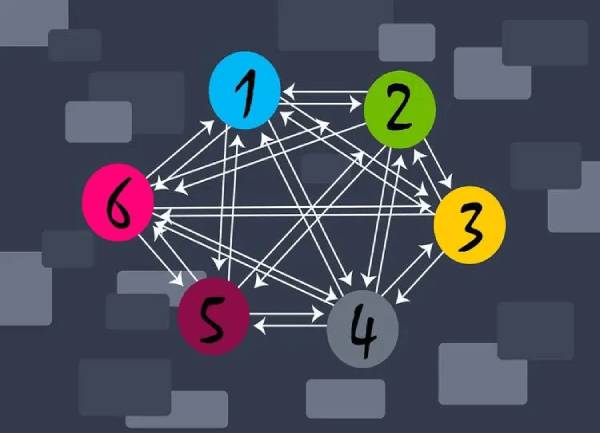Welcome to a guest post that aims to unravel the complexities of the law, demystifying legal concepts that often leave people scratching their heads. In this informative article, we will delve into the intricacies of the legal system, breaking down complex jargon and offering clear explanations that anyone can understand. Whether you’re a law student, a legal professional, or simply someone curious about the inner workings of the justice system, this post is for you. We’ll be examining a wide range of legal concepts, from common terms like “constitutional law” and “civil law” to more obscure topics like “res ipsa loquitur” and “prima facie.” You’ll gain a deeper understanding of how the law functions and how it impacts various aspects of our lives. Written by an expert in the field, this guest post combines a wealth of knowledge with a knack for explaining complex ideas in a relatable way. So, if you’ve ever found yourself baffled by legal terminology or simply want to broaden your understanding of the law, this post is a must-read. Get ready to have the law unraveled before your eyes.
Common Legal Concepts Explained
Understanding the law begins with familiarizing oneself with basic legal concepts. Constitutional law forms the foundation of a country’s legal system, outlining the structure of government and the rights of individuals. Civil law, on the other hand, deals with disputes between individuals and organizations, ranging from contracts to personal injury cases. Knowing the difference between criminal law and civil law is crucial; the former involves offenses against the state, while the latter concerns private disputes.
Another important concept is tort law, which addresses situations where someone’s actions cause harm to another. This can include everything from car accidents to defamation. By grasping these fundamental ideas, one can better navigate more complex legal issues.
Understanding Legal Terminology
Legal language can be daunting, filled with Latin phrases and specialized terms. For instance, res ipsa loquitur translates to “the thing speaks for itself,” a doctrine used in tort cases where negligence is assumed because the harm would not ordinarily occur without it. Prima facie, meaning “at first sight,” refers to evidence that is sufficient to establish a fact unless rebutted by contrary evidence.
Deciphering these terms can make legal documents and discussions more comprehensible. Habeas corpus, for example, is a writ requiring a person under arrest to be brought before a judge, ensuring that detention is lawful. Understanding such terminology demystifies the law, making it more accessible.

law guest post
The Role of Attorneys and Legal Professionals
Attorneys play a critical role in the legal system, advocating for clients, providing legal advice, and representing them in court. Beyond attorneys, the legal profession includes paralegals, who assist lawyers in preparing cases, and judges, who oversee court proceedings and ensure justice is served.
Each legal professional contributes to the judicial process, ensuring that laws are applied fairly and consistently. By understanding their roles, one can better appreciate the collaborative effort required to maintain the rule of law.
How Laws Are Made and Enforced
Laws are created through a complex process involving multiple branches of government. In a typical system, legislative bodies draft and pass laws, which are then signed by the executive branch. Judicial bodies interpret these laws, ensuring they are applied correctly and in accordance with constitutional principles.
Once enacted, laws must be enforced. This is where law enforcement agencies come in, ensuring compliance and addressing violations. Understanding this process highlights the interplay between different governmental branches and the importance of checks and balances.
Types of Legal Cases and Their Processes
Legal cases can broadly be categorized into criminal and civil cases. Criminal cases involve the prosecution of individuals or entities charged with violating laws, where the government seeks to impose penalties like imprisonment or fines. Civil cases, meanwhile, involve disputes between parties seeking resolution through compensation or specific performance.
Each type of case follows a distinct process. Criminal cases start with an investigation and arrest, followed by arraignment, trial, and sentencing. Civil cases begin with a complaint, followed by the discovery process, trial, and potentially an appeal. Understanding these processes provides insight into how justice is administered.
Important Legal Rights and Responsibilities
Legal systems are built on a foundation of rights and responsibilities. Fundamental rights, such as the right to a fair trial and freedom of speech, are enshrined in constitutions and legal codes. Alongside these rights are responsibilities, like obeying laws and paying taxes.
Awareness of these rights and responsibilities empowers individuals to navigate the legal system effectively. It ensures they can protect their interests while fulfilling their obligations to society.

law guest post
Debunking Common Legal Myths
Many misconceptions surround the law. For instance, some believe that verbal agreements are not legally binding, but they can be enforceable in certain circumstances. Another myth is that all lawyers frequently appear in court; in reality, many lawyers specialize in advisory roles or transactional work.
By debunking these myths, we foster a more accurate understanding of the legal landscape, helping individuals make informed decisions.
Resources for Further Legal Education
Continued learning is vital for staying informed about legal matters. Numerous resources are available, from online courses and legal blogs to books and seminars. Institutions like law schools and bar associations offer educational programs and materials to deepen one’s understanding of the law.
Conclusion: Empowering Readers with Legal Knowledge
In conclusion, demystifying legal concepts helps bridge the gap between the law and the public. By breaking down complex terminology and explaining key processes, this guest post aims to empower readers with the knowledge needed to navigate the legal system confidently. Whether you’re pursuing a legal career or simply seeking to understand your rights and responsibilities, the law, when unraveled, becomes a powerful tool for justice and fairness.


